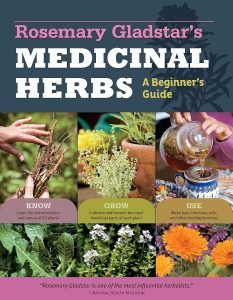Are Herbal Remedies Better Than Antibiotics?
In the ongoing quest for good health, the question of whether herbal remedies are superior to antibiotics has long been a topic of interest and debate. As we navigate the intricacies of our own well-being, it’s only natural to seek alternatives to conventional medicine. In this article, we explore the advantages and limitations of herbal remedies compared to antibiotics, providing you with valuable insights to make informed choices when it comes to your own health. So, join us as we dig into this fascinating topic and unlock the potential wonders of herbal remedies.
Effectiveness of herbal remedies
Research studies on the effectiveness of herbal remedies
Research studies on the effectiveness of herbal remedies have been conducted to determine the validity and potential benefits of these natural alternatives to conventional medicine. While there is limited scientific evidence for all herbal remedies, some studies have shown promising results in treating certain conditions. For example, a study published in the Journal of Natural Products found that the herb Echinacea may be effective in reducing the duration and severity of the common cold. Another study published in the Journal of Ethnopharmacology suggested that the herb St. John’s Wort may be effective in treating mild to moderate depression.
Comparison of effectiveness between herbal remedies and antibiotics
When comparing the effectiveness of herbal remedies and antibiotics, it is important to consider the specific condition being treated. Antibiotics are commonly prescribed for bacterial infections and have proven to be highly effective in eradicating such infections. However, when it comes to viral infections, antibiotics have no effect, whereas certain herbal remedies may offer some relief by boosting the immune system or reducing symptom severity. It is important to note that while herbal remedies may provide relief or improve certain symptoms, they may not always be a substitute for antibiotics when it comes to treating severe or life-threatening infections.
Safety of herbal remedies
Potential side effects of herbal remedies
Just like any other form of medication, herbal remedies have the potential for side effects. Although herbal remedies are generally considered natural and safe, they are not without risks. Some people may experience allergic reactions or adverse effects when using certain herbs. For example, the herb St. John’s Wort has been known to interact negatively with certain medications, including antidepressants and birth control pills. It is essential to consult with a qualified healthcare professional before using any herbal remedy to minimize the risk of potential side effects.
Inconsistent quality and dosage of herbal remedies
One of the challenges with herbal remedies is the lack of standardization in terms of quality and dosage. Unlike pharmaceutical drugs, which undergo rigorous testing and regulation, herbal remedies may vary in potency and purity. Different brands or sources of the same herb may contain varying levels of active compounds, which can impact their effectiveness. Additionally, the dosage of herbal remedies is often not clearly defined, making it difficult to determine the appropriate amount to take. This inconsistency in quality and dosage can affect the reliability and safety of herbal remedies.

Resistance and overuse of antibiotics
Emergence of antibiotic resistance
One of the significant concerns with the widespread use of antibiotics is the emergence of antibiotic resistance. Over time, bacteria can develop the ability to withstand the effects of antibiotics, rendering them ineffective. This phenomenon poses a significant threat to public health, as it limits the effectiveness of antibiotics and may lead to the resurgence of once easily treatable infections. The overuse of antibiotics, both in human medicine and in agriculture, has contributed to the development of antibiotic-resistant bacteria. It is crucial to use antibiotics judiciously and only when necessary to combat this growing problem.
Overuse of antibiotics in modern medicine
In modern medicine, antibiotics are often prescribed as a first-line treatment for a variety of infections, even when their effectiveness may not be warranted. This overuse of antibiotics can lead to unnecessary harm and contribute to the development of antibiotic resistance. By relying too heavily on antibiotics, we risk diminishing their effectiveness in the long run. It is important to reserve the use of antibiotics for situations where they are truly necessary and explore alternative treatments, such as herbal remedies, when appropriate.
Advantages of herbal remedies
Natural and holistic approach to healing
One of the advantages of herbal remedies is that they offer a more natural and holistic approach to healing. Many herbal remedies are derived from plant materials and have been used for centuries in traditional medicine systems. They often work synergistically with the body’s natural processes to promote overall wellness and balance. Unlike antibiotics, which target specific bacteria, herbal remedies often have a broader and more systemic effect on the body, supporting various organ systems and functions.
Less likelihood of adverse reactions
Herbal remedies are generally recognized as having a lower likelihood of adverse reactions compared to pharmaceutical drugs. This is due to the fact that herbal remedies are composed of natural compounds that are often well-tolerated by the body. However, it is still important to exercise caution and consult with a healthcare professional before using any herbal remedy, as individual reactions can vary. By using herbal remedies appropriately and following dosage instructions, the risk of adverse reactions can be minimized.

Limitations of herbal remedies
Lack of standardization in herbal remedies
One of the limitations of herbal remedies is the lack of standardization in the industry. Without strict regulations and quality control measures, there is variability in the potency and purity of herbal products. This lack of standardization makes it challenging for consumers to determine the appropriate dosage and ensure consistent quality. Additionally, the variation in quality can impact the effectiveness of herbal remedies and lead to unpredictable results.
Limited scientific evidence for all herbal remedies
While herbal remedies have been used for centuries in traditional medicine, the scientific evidence supporting their effectiveness is often limited. Due to the complex nature of herbal remedies and the vast number of plant species used, conducting rigorous scientific studies can be challenging. As a result, there may be a lack of conclusive evidence for the efficacy of many herbal remedies. This does not necessarily mean that these remedies are ineffective, but rather highlights the need for further research to validate their benefits and determine their appropriate use.
Traditional medicine practices
Herbal remedies as part of traditional medical systems
Herbal remedies are deeply rooted in traditional medical systems practiced around the world. Traditional Chinese Medicine, Ayurveda, and Indigenous healing practices all incorporate the use of herbal remedies to treat various health conditions. These systems of medicine emphasize a holistic approach to healing, considering not only the physical symptoms but also the emotional and spiritual aspects of an individual. Herbal remedies are often used in conjunction with other modalities, such as acupuncture or dietary changes, to bring balance and promote overall well-being.
Cultural beliefs and practices
The use of herbal remedies is often influenced by cultural beliefs and practices. In many cultures, herbal remedies have been passed down through generations, with specific plants and preparations held in high regard for their healing properties. Cultural beliefs and practices surrounding herbal remedies can play a significant role in shaping an individual’s healthcare choices. It is important to respect and acknowledge the cultural diversity and traditions associated with herbal remedies when considering their use.

Appropriate use of antibiotics
Situation where antibiotics are necessary
While the overuse of antibiotics is a growing concern, there are situations where they are necessary and life-saving. Antibiotics are primarily used to treat bacterial infections, such as urinary tract infections, pneumonia, and strep throat. In these cases, antibiotics target the specific bacteria causing the infection and help eliminate it from the body. It is vital to follow the guidance of healthcare professionals in determining when antibiotics are appropriate and necessary for treatment.
Importance of following healthcare professional’s advice
When it comes to the use of antibiotics, it is crucial to follow the advice and guidance of healthcare professionals. They possess the knowledge and expertise to evaluate each individual’s unique health condition and determine the most appropriate course of treatment. Deviating from their recommendations or self-prescribing antibiotics can lead to ineffective treatment, potential harm, and the development of antibiotic resistance. Trusting in the expertise of healthcare professionals is vital to ensure the proper and responsible use of antibiotics.
Combining herbal remedies and antibiotics
Potential interactions and contraindications
When considering combining herbal remedies with antibiotics, it is essential to be aware of potential interactions and contraindications. Some herbs may interfere with the absorption or effectiveness of antibiotics, reducing their potential benefits. For example, the herb Goldenseal may inhibit the activity of certain antibiotics. It is crucial to disclose all herbal remedies and medications being taken to healthcare professionals to determine if any potential interactions exist.
Supplementing antibiotics with herbal remedies
In certain cases, herbal remedies can be used to complement antibiotic treatment. For example, some herbal remedies may help alleviate the side effects of antibiotics, such as digestive disturbances or reduced immune function. However, it is important to consult with a healthcare professional to ensure that the combination of herbal remedies and antibiotics is appropriate and safe for the specific health condition being treated.
Personal preferences and beliefs
Individual choices and beliefs about healthcare
Personal preferences and beliefs can play a significant role in the integration of herbal remedies and antibiotics. Some individuals may have a strong inclination towards natural and holistic approaches to healthcare, leading them to prefer herbal remedies over antibiotics whenever possible. Others may have cultural or religious beliefs that guide their healthcare choices. It is essential to respect and acknowledge these personal preferences and beliefs, as long as they are based on informed decisions and do not compromise an individual’s health and well-being.
Integration of herbal remedies and antibiotics based on personal preference
The integration of herbal remedies and antibiotics based on personal preference should be done with caution and under the guidance of a healthcare professional. While some herbal remedies may provide additional support and benefits alongside antibiotics, it is crucial to ensure compatibility and avoid potential interactions. Open and honest communication with healthcare professionals is key to developing a comprehensive treatment plan that takes into account personal preferences while prioritizing safety and efficacy.
Conclusion
The need for a balanced approach to healthcare
In conclusion, the effectiveness and safety of herbal remedies compared to antibiotics depend on various factors, including the specific health condition being treated and individual circumstances. Both herbal remedies and antibiotics have their advantages and limitations, and a balanced approach to healthcare is crucial. By considering the individual’s health condition, personal preferences, and the guidance of healthcare professionals, a comprehensive and personalized treatment plan can be developed that integrates the benefits of both herbal remedies and antibiotics.
Considering individual health conditions and professional advice
When it comes to choosing between herbal remedies and antibiotics, it is essential to consider the individual’s health condition and seek professional advice. While herbal remedies may offer natural alternatives and have fewer side effects, antibiotics are necessary for treating certain bacterial infections. Working closely with healthcare professionals can help determine the most appropriate and effective treatment plan for each specific situation.
Ultimately, the goal is to prioritize individual health and well-being, making informed decisions based on the best available evidence and professional advice. Whether choosing herbal remedies, antibiotics, or a combination of both, understanding the benefits, limitations, and potential risks is key to ensuring safe and effective healthcare practices.




